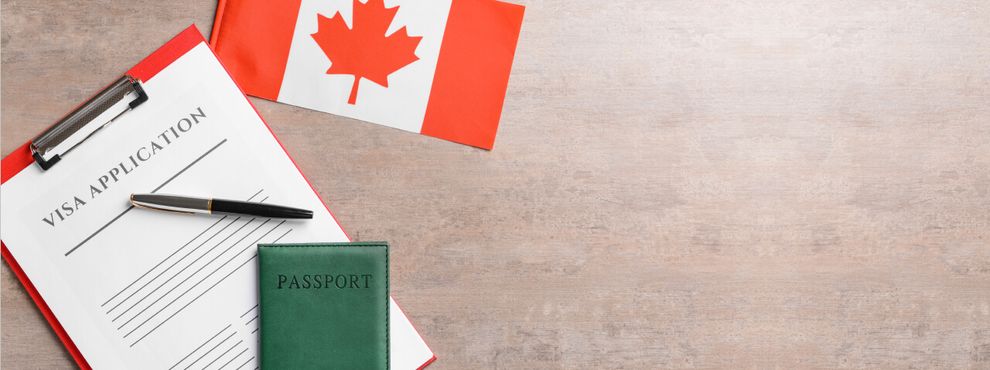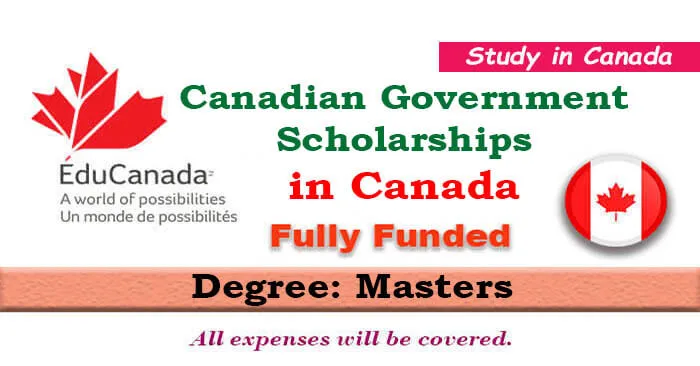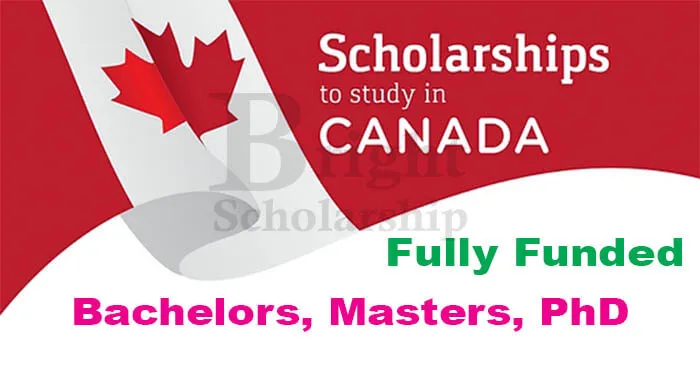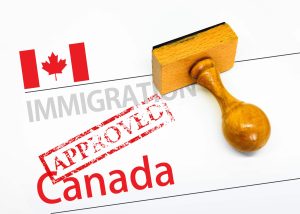Advertisements
Securing a Canada study visa is an essential step for international students aspiring to pursue their education in the Great White North. While the process may seem daunting, there are several straightforward methods and tips that can streamline the application process and enhance your chances of obtaining a Canada study visa. Let’s explore some easy ways to navigate this process:
- Choose the Right Program and Institution: The first step in obtaining a Canada study visa is to choose a program and institution that aligns with your academic goals and aspirations. Research Canadian universities and colleges to find the right fit for your field of study and desired educational experience.
- Ensure Eligibility: Before applying for a Canada study visa, ensure that you meet the eligibility criteria set by Immigration, Refugees and Citizenship Canada (IRCC). This includes having a valid acceptance letter from a designated learning institution (DLI), proving that you have sufficient funds to cover tuition fees, living expenses, and return transportation, as well as meeting health and security requirements.
- Submit a Complete Application: Compile all required documents and submit a complete application to the IRCC. This typically includes your passport, letter of acceptance from a DLI, proof of financial support, a statement of purpose, academic transcripts, and any other documents specified by the visa office.
- Apply Online: The easiest and most convenient way to apply for a Canada study visa is online through the IRCC website. Create an account, fill out the application form, upload your documents, and pay the application fee electronically. Online applications are processed faster and offer the convenience of tracking the status of your application online.
- Obtain a Study Permit: Once your application is approved, you will receive a study permit, which allows you to study in Canada for the duration of your program. Ensure that you understand the conditions of your study permit, including any restrictions on working while studying and the need to maintain full-time enrollment.
- Plan Your Arrival: Plan your arrival in Canada carefully, taking into account travel arrangements, accommodation, and any pre-departure requirements. Familiarize yourself with Canadian immigration procedures and prepare to present your study permit and other relevant documents to immigration officials upon arrival.
- Adhere to Visa Conditions: Once in Canada, it’s essential to adhere to the conditions of your study permit, including maintaining full-time enrollment, obeying Canadian laws, and renewing your study permit if necessary. Failure to comply with visa conditions could result in consequences such as deportation or being barred from re-entering Canada.
- Explore Post-Graduation Options: Many international students choose to explore post-graduation options in Canada, such as applying for a post-graduation work permit (PGWP) or seeking permanent residency through programs like the Express Entry system. Familiarize yourself with these options early on to make informed decisions about your future in Canada.
By following these easy steps and staying organized throughout the application process, obtaining a Canada study visa can be a straightforward and rewarding experience. Remember to plan ahead, gather all required documents, and seek assistance from your educational institution or immigration professionals if needed. With the right preparation and determination, you can embark on your educational journey in Canada with confidence.
The Significance of Canada Study Visas
Canada study visas hold significant importance for both international students and Canada as a whole. Here’s why:
- Access to Quality Education: Canada is renowned for its high-quality education system, with numerous world-class universities, colleges, and institutions offering a wide range of academic programs. The study visa enables international students to access these educational opportunities and benefit from the country’s excellent academic standards and resources.
- Cultural Exchange and Diversity: International students contribute to Canada’s cultural diversity by bringing their unique perspectives, experiences, and traditions to Canadian campuses. Studying alongside students from diverse backgrounds fosters cross-cultural understanding, promotes tolerance, and enriches the learning environment for all students.
- Economic Impact: The presence of international students has a significant economic impact on Canada. International students contribute billions of dollars annually to the Canadian economy through tuition fees, living expenses, and other expenditures. This influx of funds supports local businesses, creates job opportunities, and stimulates economic growth in communities across the country.
- Enhanced Research and Innovation: International students play a vital role in Canada’s research and innovation ecosystem. Many foreign students engage in cutting-edge research projects, collaborate with Canadian researchers, and contribute to scientific advancements in various fields. Their diverse perspectives and expertise enrich research initiatives and drive innovation in Canada.
- Global Talent Pipeline: Canada study visas serve as a pathway for attracting and retaining global talent. Many international students choose to pursue post-graduation opportunities in Canada, such as obtaining a post-graduation work permit (PGWP) or applying for permanent residency through immigration programs like the Express Entry system. By welcoming talented individuals from around the world, Canada strengthens its workforce and remains competitive in the global marketplace.
- Cultural Diplomacy: Education is a powerful tool for promoting international understanding and diplomacy. Canada’s commitment to welcoming international students and providing them with a welcoming and inclusive learning environment enhances its reputation as a global leader in education and fosters positive relationships with countries around the world.
In summary, Canada study visas play a crucial role in facilitating educational opportunities, fostering cultural exchange, driving economic growth, advancing research and innovation, attracting global talent, and promoting international cooperation and diplomacy. By welcoming international students with open arms, Canada continues to enrich its academic landscape and position itself as a leading destination for higher education.
Types of Canada Study Visas
Canada offers several types of study visas, also known as study permits, to accommodate the diverse needs and circumstances of international students. Here are the main types of study visas available in Canada:
- Study Permit for Academic Programs: This is the most common type of study visa for international students pursuing academic programs at designated learning institutions (DLIs) in Canada. It allows students to study full-time at the primary, secondary, post-secondary, or vocational level.
- Co-op Work Permit: Some academic programs in Canada include co-operative education (co-op) or internship components that require students to work in their field of study as part of their curriculum. The co-op work permit allows international students to work temporarily in Canada while completing their studies.
- Off-Campus Work Permit: International students enrolled in full-time academic programs at eligible post-secondary institutions may be eligible to work off-campus without a separate work permit. This permit allows students to work part-time during the academic year and full-time during scheduled breaks, such as summer vacation.
- Post-Graduation Work Permit (PGWP): The PGWP allows international students who have graduated from eligible Canadian institutions to gain valuable work experience in Canada after completing their studies. The permit is typically issued for a duration of up to three years, depending on the length of the student’s program of study.
- Visa for Language Courses: International students enrolled in short-term language courses or English/French language programs in Canada may require a study visa specifically for language studies. This visa allows students to study English or French intensively for a specified period.
- Visa for Secondary School Programs: International students enrolled in secondary school (high school) programs in Canada may require a study visa tailored to secondary education. This visa allows students to study full-time at a Canadian secondary school and may also include provisions for guardianship and accommodation.
- Visa for Distance Learning Programs: Some international students may choose to pursue distance learning or online education programs offered by Canadian institutions. While studying remotely from abroad, these students may require a study visa to participate in their chosen programs.
It’s important for international students to carefully assess their academic and career goals, as well as their individual circumstances, to determine which type of study visa best suits their needs. Additionally, students should familiarize themselves with the eligibility criteria, application process, and any specific requirements associated with each type of study visa before applying. Working closely with their educational institution and seeking guidance from immigration professionals can help ensure a smooth and successful application process.
Canada Study Visa Eligibility Criteria
To be eligible for a Canada study visa, also known as a study permit, international students must meet certain criteria set by Immigration, Refugees and Citizenship Canada (IRCC). Here are the key eligibility requirements for obtaining a Canada study visa:
- Acceptance at a Designated Learning Institution (DLI): International students must first secure admission to a designated learning institution (DLI) in Canada. DLIs are approved by provincial or territorial governments to host international students. Applicants must provide proof of acceptance in the form of a letter of acceptance from the DLI.
- Financial Means: Applicants must demonstrate that they have sufficient funds to cover tuition fees, living expenses, and return transportation costs for themselves and any accompanying family members. This may include bank statements, scholarship letters, or other evidence of financial support.
- Compliance with Immigration Laws: Applicants must be law-abiding citizens with no criminal record and must not pose a security risk to Canada. They must also be willing to comply with Canadian immigration laws and regulations.
- Medical Examination: Some applicants may be required to undergo a medical examination to ensure that they are in good health and do not pose a risk to public health or safety. This requirement typically applies to applicants from certain countries or those planning to study in certain fields, such as healthcare.
- Language Proficiency: Depending on the language of instruction of their chosen program, applicants may need to demonstrate proficiency in either English or French. This is typically done through standardized language tests such as the IELTS (International English Language Testing System) or the TOEFL (Test of English as a Foreign Language).
- Intent to Leave Canada: Applicants must demonstrate that they intend to leave Canada upon completion of their studies and return to their home country. This may involve providing evidence of ties to their home country, such as family, employment, or property ownership.
- Additional Requirements: Depending on the applicant’s country of origin, intended duration of stay, and other factors, additional requirements may apply. These could include biometric data collection, police clearance certificates, or other documentation as requested by the visa officer.
It’s important for prospective international students to carefully review the eligibility criteria and gather all required documents before applying for a Canada study visa. Working closely with their educational institution and seeking guidance from immigration professionals can help ensure a smooth and successful application process.
The Application Process for Canada Study Visas
The application process for Canada study visas, also known as study permits, involves several steps and requires careful attention to detail. Here’s a comprehensive guide to the application process:
- Determine Eligibility: Before applying for a Canada study visa, ensure that you meet the eligibility criteria set by Immigration, Refugees and Citizenship Canada (IRCC). This includes having a valid acceptance letter from a designated learning institution (DLI), demonstrating sufficient funds to cover tuition and living expenses, and meeting health and security requirements.
- Prepare Required Documents: Gather all necessary documents for your visa application. These typically include:
- Passport or travel document
- Letter of acceptance from a DLI
- Proof of financial support
- Immigration medical examination (if required)
- Language proficiency test results (if required)
- Any additional documents specified by the visa office
- Create an Online Account: Visit the Immigration, Refugees and Citizenship Canada (IRCC) website and create an online account to start your visa application. You will need to provide personal information, including your name, date of birth, and contact details.
- Complete the Application Form: Fill out the study permit application form accurately and completely. Provide information about your educational background, intended program of study, and any family members accompanying you to Canada.
- Upload Documents: Upload scanned copies of all required documents to your online account. Ensure that the documents are clear, legible, and in the specified format (PDF, JPEG, etc.).
- Pay the Application Fee: Pay the required visa application fee online using a credit card or other accepted payment method. The fee amount may vary depending on your country of residence and the type of study permit you are applying for.
- Submit Your Application: Once you have completed the application form and uploaded all required documents, submit your application through your online account. Double-check all information and documents before submitting to avoid errors or delays.
- Biometrics Appointment (if required): Some applicants may be required to provide biometric data (fingerprints and photograph) as part of the application process. If biometrics are required, you will receive instructions on how to schedule an appointment at a designated biometrics collection center.
- Attend an Interview (if required): In some cases, applicants may be required to attend an interview at a Canadian embassy, consulate, or visa application center. The interview may be conducted in person or via video conference and will assess your eligibility and intentions for studying in Canada.
- Wait for Processing: Once you have submitted your application and attended any required appointments or interviews, wait for your application to be processed. Processing times vary depending on your country of residence and the volume of applications received.
- Receive Decision: You will be notified of the decision on your visa application via email or through your online account. If approved, you will receive a letter of introduction confirming your study permit approval and instructions on how to obtain your visa.
- Travel to Canada: Upon receiving your study permit, you can make travel arrangements to Canada. Ensure that you carry all required documents, including your passport, study permit, letter of acceptance, and proof of funds, when traveling to Canada.
- Arrival and Study in Canada: Upon arrival in Canada, present your study permit and other documents to Canadian immigration officials. Familiarize yourself with the conditions of your study permit, including any restrictions on working while studying, and begin your educational journey in Canada.
By following these steps and carefully preparing your application, you can increase your chances of a successful outcome and smoothly transition to studying in Canada. If you have any questions or concerns during the application process, consider seeking guidance from your educational institution or consulting with an immigration professional.
Challenges and Considerations
While obtaining a Canada study visa offers numerous opportunities for international students, there are also various challenges and considerations to keep in mind throughout the application process and during your studies in Canada. Here are some key factors to consider:
- Competitive Application Process: The application process for Canada study visas can be highly competitive, especially for popular programs and institutions. It’s essential to submit a strong application that showcases your academic achievements, language proficiency, and financial stability to increase your chances of approval.
- Financial Planning: Studying in Canada can be expensive, with tuition fees, living expenses, and other costs adding up quickly. Before applying for a study visa, carefully consider your financial situation and ensure that you have sufficient funds to cover all expenses throughout your studies.
- Health Insurance Requirements: International students in Canada are typically required to have health insurance coverage for the duration of their stay. Make sure to obtain the necessary health insurance before arriving in Canada to avoid any issues or penalties.
- Cultural Adjustment: Moving to a new country can be challenging, and international students may experience culture shock as they adjust to life in Canada. It’s essential to be open-minded, adaptable, and willing to embrace new experiences and perspectives during your time in Canada.
- Language Barrier: While many academic programs in Canada are offered in English or French, language barriers may still exist, particularly for non-native speakers. Take advantage of language support services offered by your institution and consider improving your language skills through additional classes or language exchange programs.
- Work and Study Balance: Balancing academic studies with part-time work opportunities can be challenging for international students. Be mindful of your workload and prioritize your academic responsibilities while still making time for work, social activities, and self-care.
- Immigration Regulations: Canadian immigration regulations are subject to change, and it’s essential to stay informed about any updates or amendments that may affect your study permit status. Keep track of visa expiry dates, renewal requirements, and any conditions attached to your study permit.
- Long-Term Planning: While studying in Canada offers valuable opportunities for personal and professional growth, it’s essential to consider your long-term plans beyond graduation. Explore post-graduation options, such as applying for a post-graduation work permit (PGWP) or seeking permanent residency, to maximize your opportunities in Canada.
By being aware of these challenges and considerations and planning accordingly, you can navigate the Canada study visa process more effectively and make the most of your educational experience in Canada. Don’t hesitate to seek support from your educational institution, immigration advisors, or fellow international students if you encounter any challenges along the way.
Maintaining Your Canada Study Visa Status
Maintaining your Canada study visa status is crucial to ensure that you can continue studying in Canada legally and avoid any immigration issues. Here are some key steps to help you maintain your study visa status:
- Comply with Study Permit Conditions: Upon receiving your study permit, carefully review the conditions attached to it. These conditions may include restrictions on working while studying, requirements to remain enrolled in a full-time academic program, and limitations on the duration of your stay in Canada.
- Stay Enrolled and Make Progress: As a study permit holder, you must remain enrolled in a designated learning institution (DLI) and make satisfactory progress towards completing your program of study. Attend classes regularly, complete assignments on time, and strive to achieve good academic standing.
- Renew Your Study Permit on Time: If your study permit is set to expire before you complete your program of study, you must apply for a permit extension before the expiry date. Begin the renewal process well in advance to avoid any gaps in your legal status and ensure continuous eligibility to study in Canada.
- Maintain Financial Stability: Ensure that you have sufficient funds to cover your tuition fees, living expenses, and other costs throughout your studies in Canada. Keep track of your finances, budget responsibly, and be prepared to provide proof of financial support if requested by immigration authorities.
- Comply with Canadian Laws and Regulations: As a temporary resident in Canada, you are required to abide by Canadian laws and regulations at all times. This includes respecting local customs and traditions, following traffic rules, and refraining from engaging in illegal activities that could jeopardize your study visa status.
- Report Changes in Circumstances: If any significant changes occur during your stay in Canada, such as changes to your program of study, address, or marital status, you must notify Immigration, Refugees and Citizenship Canada (IRCC) promptly. Failure to report changes could result in complications with your study permit status.
- Maintain Valid Health Insurance: Ensure that you have valid health insurance coverage for the duration of your stay in Canada. Most provinces require international students to have provincial health insurance or private health insurance to cover medical expenses.
- Plan Ahead for Post-Graduation Options: If you plan to remain in Canada after completing your studies, start exploring post-graduation options well in advance. Consider applying for a post-graduation work permit (PGWP), seeking permanent residency through immigration programs, or pursuing further studies in Canada.
By following these guidelines and staying informed about your rights and responsibilities as a study permit holder, you can maintain your Canada study visa status and enjoy a successful academic experience in Canada. If you have any questions or concerns about maintaining your status, don’t hesitate to seek guidance from your educational institution’s international student services office or immigration advisors.
Advertisements
Conclusion
Obtaining and maintaining a Canada study visa is a significant step towards achieving your academic and career goals in Canada. By carefully following the application process, meeting eligibility criteria, and adhering to immigration regulations, you can secure your study permit and embark on an enriching educational journey in Canada.
Throughout your studies, it’s essential to stay informed about your study permit conditions, comply with Canadian laws and regulations, and plan ahead for any changes or post-graduation options. By maintaining your study visa status and making the most of your time in Canada, you can maximize the opportunities for personal and professional growth offered by studying in this diverse and welcoming country.
Remember to seek support from your educational institution, immigration advisors, and fellow international students if you encounter any challenges along the way. With proper planning, diligence, and a positive attitude, you can make the most of your Canada study visa and enjoy a rewarding academic experience in one of the world’s leading destinations for international students.
Advertisements






